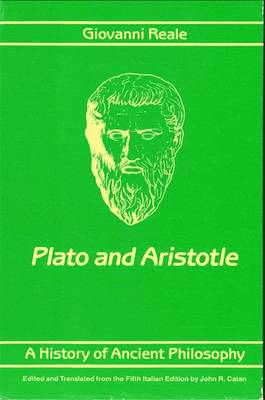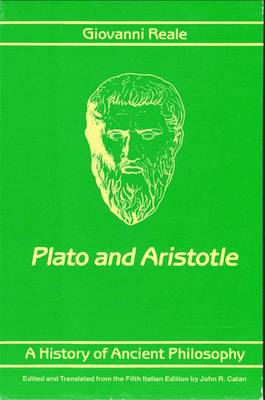
- Afhalen na 1 uur in een winkel met voorraad
- Gratis thuislevering in België vanaf € 30
- Ruim aanbod met 7 miljoen producten
- Afhalen na 1 uur in een winkel met voorraad
- Gratis thuislevering in België vanaf € 30
- Ruim aanbod met 7 miljoen producten
Omschrijving
In this book Reale presents Plato and Aristotle.
At the center of Reale's interpretation of Plato is the fulcrum of the supersensible, the metaphysical discovery that Plato presented as a result of the Second Voyage. This discovery of the supersensible is, in Reale's view, not only the fundamental phase of ancient thought, but it also constitutes a milestone on the path of western philosophy.
Reale presents Plato in three different dimensions: the theoretic, the mystical-religious, and the political. Each of these components takes on meaning from the Second Voyage. In addition, Reale has shown that only in the light of the Unwritten Doctrines handed down through the indirect tradition, do these three components, and the Second Voyage itself, acquire their full meaning, and only in this way is a unitary conception of Plato's thought achieved.
The interpretation of Aristotle that Reale proposes depends on his interpretation of Plato. Aristotle read without preconceptions is not the antithesis of Plato. Reale points out that Aristotle was unique among thinkers close to Plato, in being the one who developed, at least in part, his Second Voyage. The systematic-unitary interpretation of Aristotle which Reale has previously supported converges with the new systematic-unitary interpretation of Plato. Certain doctrinal positions which are usually reserved to treatments in monographs will be explored, because only in this way can the two distinctive traits of Aristotle's thought emerge: the way in which he tries to overcome and confirm the Socratic-Platonic positions, and the way in which he formally creates the system of philosophical knowledge.
Specificaties
Betrokkenen
- Auteur(s):
- Uitgeverij:
Inhoud
- Aantal bladzijden:
- 437
- Taal:
- Engels
- Reeks:
Eigenschappen
- Productcode (EAN):
- 9780791405178
- Verschijningsdatum:
- 8/11/1990
- Uitvoering:
- Paperback
- Formaat:
- Trade paperback (VS)
- Afmetingen:
- 152 mm x 229 mm
- Gewicht:
- 689 g

Alleen bij Standaard Boekhandel
Beoordelingen
We publiceren alleen reviews die voldoen aan de voorwaarden voor reviews. Bekijk onze voorwaarden voor reviews.








